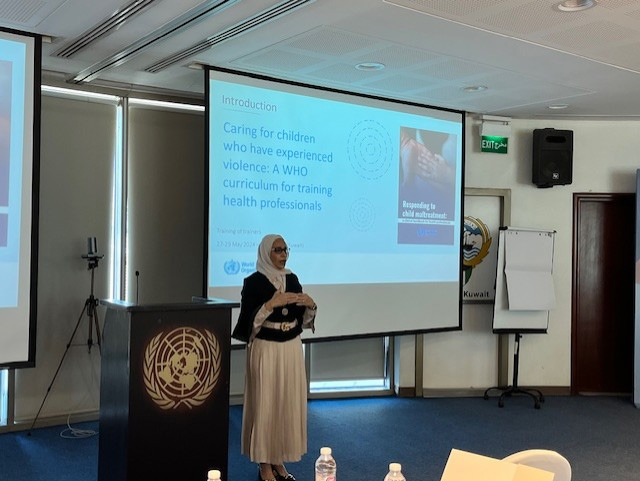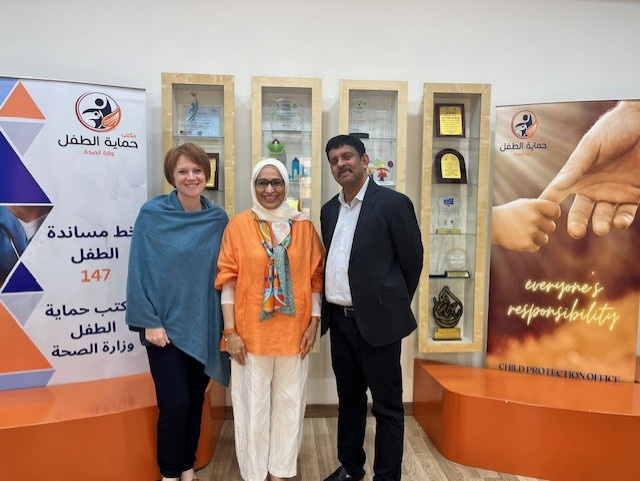 4 June 2024 – Training has been carried out in Kuwait as an important step towards improving access to timely and child-friendly life-saving services for prevention, early detection and response to violence.
4 June 2024 – Training has been carried out in Kuwait as an important step towards improving access to timely and child-friendly life-saving services for prevention, early detection and response to violence.
The national training on the health system response to violence against children was led by the Child Protection Office under Kuwait’s Ministry of Health, with support from WHO. It was the first national training of its kind in the Eastern Mediterranean Region. The United Nations Children’s Fund (UNICEF) also took part, giving a presentation on global and regional trends in child protection and multisectoral coordination and referral.
Over 3 days, the training aimed to strengthen participants’ knowledge and capacity on identification, treatment, documentation and referral of child survivors of violence and their supporting caregiver. The training targeted primary- and tertiary-level health workers, as well as school health professionals.
Opening the event, Director of the Child Protection Office Dr Mona Al Kawari said: “The health system can play a role in both preventing and responding to all forms of violence, in particular to violence against women and children.”
WHO Representative to Kuwait Dr Assad Hafeez added: “Ensuring health and well-being also means protecting children from all forms of violence. Health systems must be properly equipped to do this, and so WHO is pleased to be collaborating with the Ministry of Health in Kuwait to deliver this training on violence against children, as part of the government’s strategy to holistically advance good health and well-being in Kuwait. I commend the Government of Kuwait for being the first country in the Region to offer this training to health workers.”
 The WHO Regional Office for the Eastern Mediterranean helped devise this training package to increase health providers’ capacity in their day-to-day practice to respond to violence against children. The training package was informed by the “Global plan of action to strengthen the health system within a national multisectoral response to address interpersonal violence, in particular against women and girls, and against children”, as well as the derivative WHO clinical handbook for health professionals on child maltreatment.
The WHO Regional Office for the Eastern Mediterranean helped devise this training package to increase health providers’ capacity in their day-to-day practice to respond to violence against children. The training package was informed by the “Global plan of action to strengthen the health system within a national multisectoral response to address interpersonal violence, in particular against women and girls, and against children”, as well as the derivative WHO clinical handbook for health professionals on child maltreatment.
WHO’s involvement was driven by World Health Assembly resolution WHA67.15 on “Strengthening the role of the health system in addressing violence, in particular against women and girls, and against children”.
Next steps for Kuwait include the drafting of a 3-year workplan to strengthen the health system response to violence against children by training concerned health professionals and improving related monitoring and follow-up; drafting of standard operating procedures for primary health care centres to systematically address violence against children; and increasing advocacy and awareness-raising, with a particular focus on schools and primary health care centres.
Related links
Responding to child maltreatment: a clinical handbook for health professionals


